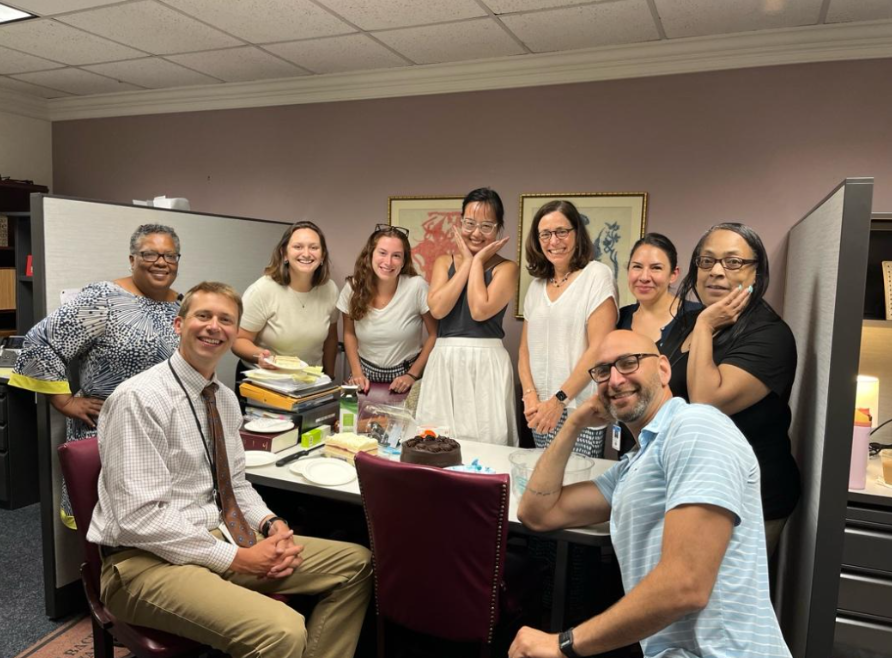News / The Fair And Just Journal
From Big City to Small Town: What I Learned About Community and Law as an FJP Summer Fellow
By Gabrielle Yan — I have had multiple internships in criminal prosecution, but the summer with Fair and Just Prosecution (FJP) and the Albemarle County (VA) Commonwealth’s Attorney’s Office was unique, since it provided me an opportunity to truly engage with the local community.
I come from a foreign country where political power is highly concentrated in the central government. Even New York City seems small compared to my hometown, which is the capital city of our nation with a population of nearly 20 million. I crossed the ocean to attend law school in the United States with an admiration for the ideas of federalism, local autonomy, and community democracy. Manhattan is an exciting city, for sure, but it is not what I was looking for.
When I announced that I would spend three whole months in the small town of Charlottesville, Virginia, people thought I was crazy. Most international students set their eyes solely on big, international law firms and corporation practices – not because they are greedy for the money, but because “big laws” are the only employers who can afford to sponsor a work visa; and corporate practice is internationally transferrable, so a firm can relocate international students to a different office abroad should the visa lottery not work out. Few of us have ever dreamed of diving into a small, local community, where it could be hard for outsiders (not to mention a foreigner) to blend in.
I joined the Albemarle County Commonwealth’s Attorney’s Office as one of the few non-University of Virginia students they had hosted in years. The team consisted of less than 20 people, and there were no separate units in charge of different cases. As a result, I participated in cases of various subject matters that I had never worked on before, including: traffic violations, economic crimes, sexual abuse, parole, and bail hearings. The office building is adjacent to an elegant brick courthouse dating back to over 400 years ago. Marshals, attorneys, prosecutors, observers, and even some criminal defendants, greeted each other cheerfully in the hallway. Apparently, this court square used to be the major public forum back in the 18th century and it still serves as an embodiment of “community” today. It reminded me of the original meaning of “society,” which represents the solidity of union among neighbors, instead of the intangible, abstract notion of society that is too big for any individual to comprehend.
I was very lucky to have the chance to participate in a real local legislative procedure: the county was planning to enact a new statute and consulted with Commonwealth Attorney (CA) James Hingeley, who asked me to prepare a memo regarding our office’s position. CA Hingeley later discussed with me a few policy considerations beyond pure legal matter. It was the first time in my life that I was able to see real-world politics interacting with legal norms, which illustrated to me the essence of legislation. I have never felt so aware of the vivid interests and concerns behind the text of a (potential) statute as I witnessed those tensions in person. Based on my understandings of Aristotle, Durkheim, and other sociologists’ theories, I firmly believed that the process of participating in politics is the distinguishing factor that turns an individual into a member of the community, as they contribute their views to the public opinion. I had not had the luck to experience this back in my hometown: although I had, in theory, the right to vote as a citizen, I felt that my single vote would not change or influence anything, and that I had no connections with any of the candidates. It was amazing that in a small town so far away from home, my voice was heard, though indirectly, in the public forum; and I felt more empowered than ever before. The experience gave me a sense of belonging on this foreign land, and I did not feel like an indifferent “outsider” anymore.
